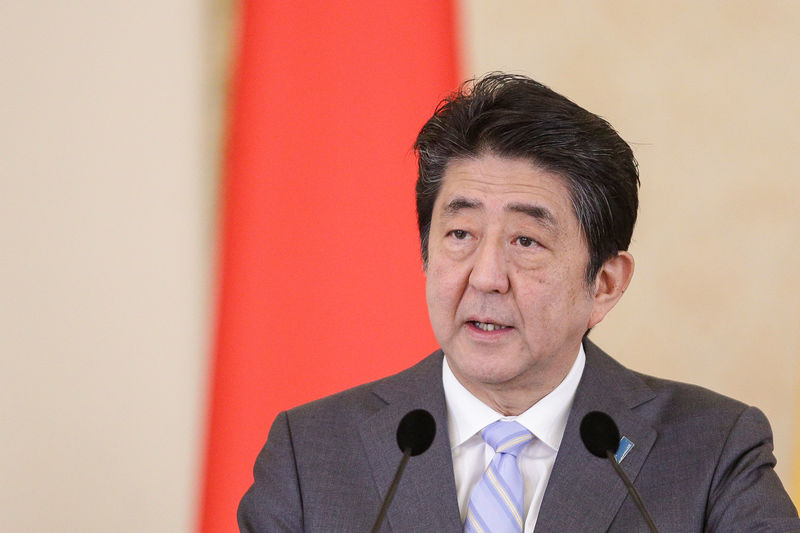By Stanley White
TOKYO (Reuters) - The Japanese government raised its assessment of the economy in January for the first time in seven months due to rising consumer spending, an encouraging sign that inflation could start to pick up this year.
"Japan's economy is gradually recovering," the Cabinet Office said in its monthly economic report on Friday. That marked an upgrade from December, when the Cabinet Office said the economy was on a recovery path.
The government also raised its assessment of consumer spending for the first time since June after retail sales, household spending, and new car sales gained momentum toward the end of 2017.
Consumer spending is "recovering," which is an upgrade from the phrase "gradual recovery" used in last month's report.
The assessment increases the chance that the government will declare an end to deflation, which would amount to a declaration of victory for Prime Minister Shinzo Abe's ambitious campaign to reflate the economy.
"The difference between previous recoveries and the current recovery is that right now both the corporate sector and the household sector are steadily improving," said Japanese Economy Minister Toshimitsu Motegi.
Data for November and December showed consumer spending bounced back from a lull caused by bad weather, a Cabinet Office official told reporters.
However, the Cabinet Office left unchanged its assessment that consumer prices are flat, showing it may still take some time for improvements in the economy to feed through to consumer prices.
The Cabinet Office also stayed with its view that industrial output and capital expenditure are gradually expanding.
Abe took office in late 2012 with a bold plan to shake off 15 years of deflation and sub-par growth.
Gross domestic product has expanded for the past seven quarters, the strongest run of growth in a decade. The output gap shows demand exceeds supply by the most in more than nine years. Stock prices are at their highest in 26 years, and corporate profits are near an all-time high.
Business investment is rising, exports are growing and the labor market is the tightest in decades, due partly to a shrinking population.
BRIGHT GLOBAL PICTURE
Japan's robust outlook coincides with increasing evidence that the global economy is also in good health.
China's economy grew faster than expected in the fourth quarter, defying concerns of a slowdown.
World shares have rallied at the start of 2018 on optimism about growth and earnings.
Traders also expect a withdrawal of monetary stimulus in the United States and Europe.
"The outlook for the global economy is good, and that influences things like Japan's exports," said Hiroshi Miyazaki, senior economist at Mitsubishi UFJ Morgan Stanley (NYSE:MS) Securities.
"In addition, there are no domestic factors that suggest Japan's growth will falter."
Japan's economy minister has hinted that it is possible to declare an end to deflation before consumer prices reach the Bank of Japan's 2 percent inflation target.
In November, core consumer prices rose 0.9 percent year-on-year. This is an improvement over 2016, when prices fell, but still not close to the BOJ's price target.
